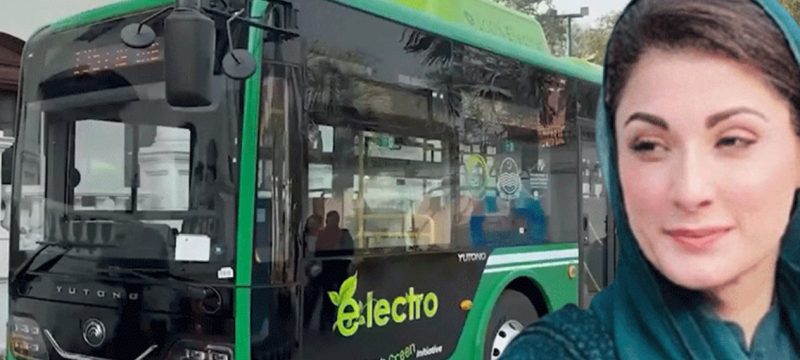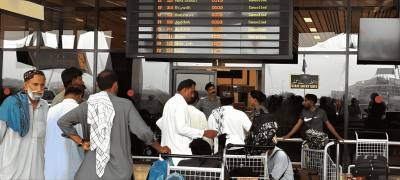Punjab Chief Minister Maryam Nawaz inaugurated Lahore’s first electric bus transport system, marking a significant step towards a more sustainable and environmentally friendly public transport network. Speaking at the launch event, Nawaz emphasized that this initiative is part of her “Green Punjab” vision, aimed at reducing traffic congestion and curbing carbon emissions in the city.
She revealed that 27 electric buses have already been rolled out, with a minimal fare of Rs. 20 to make the service more accessible to the public. The buses will also provide free rides for students, senior citizens, and differently-abled individuals through an electric bus card system, enhancing mobility for these groups. Additionally, passengers can enjoy free internet and charging facilities onboard, adding a layer of convenience to their commute.
Also Read: Punjab CM Maryam Nawaz Launches Solarisation Project for Agricultural Tube Wells
Maryam Nawaz further announced plans to introduce 500 more electric buses by August, with an aim to transform Lahore’s public transport landscape. The government is also planning to expand the Metrobus service to cities like Faisalabad and Gujranwala in the next financial year. As part of a broader transport modernization drive, 100,000 electric bikes will be provided to students, offering them a greener and more efficient mode of travel.
Meanwhile, Peshawar is also taking steps to improve its public transportation system. The Khyber-Pakhtunkhwa (K-P) government, led by Chief Minister Ali Amin Khan Gandapur, is set to expand its Bus Rapid Transit (BRT) service by adding 72 new hybrid diesel buses. These buses will operate on new routes along Ring Road, Bara Road, and Khyber Road, addressing the growing demand and easing congestion in the city.
During a recent meeting, officials discussed plans to complete the civil works required for the new BRT routes within six months. Additionally, the ongoing construction of the Mall of Hayatabad and Dubgari Plaza, part of the BRT infrastructure, is expected to be finished by the end of April.
With these initiatives, both Lahore and Peshawar are poised to offer greener, more efficient transport solutions, benefiting residents and contributing to a more sustainable urban environment.









